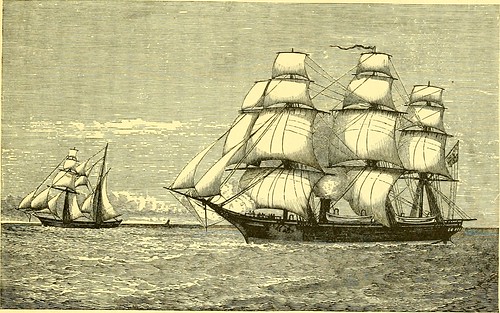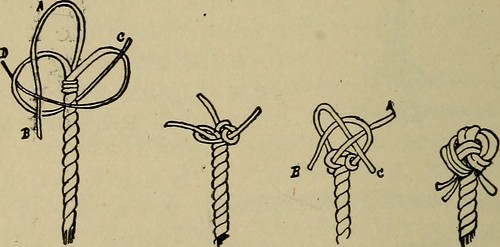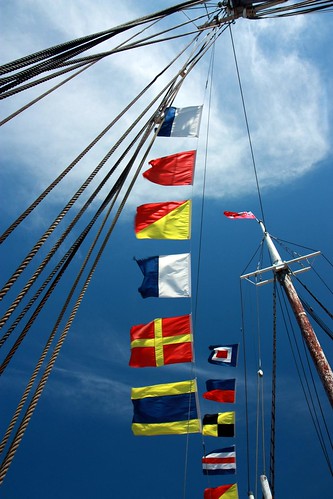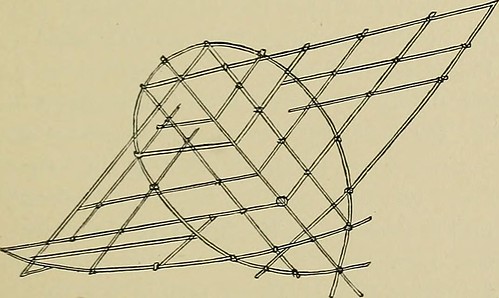"It is a bright sunny evening: the sea reflects a thousand glowing colours, and, in a minute or two, I shall be gliding on its surface." Dreams, Waking Thoughts, and Incidents by William Beckford
My thoughts are never very far from boats at the best of times and this only increases when I'm waiting for the ferry home to Greenwich, North Greenwich or Woolwich (I like to vary things a bit). While I was waiting for the Thames Clipper ferry home I jotted down, on my phone's 'notes' app, a bit of a brainstorm for an Imaginary Maritime Science Festival. Bagsy Festival Director, obviously.
Over Easter (April 2017) Greenwich and Woolwich (not sure about North Greenwich) will be hosting the Tall Ships festival 2017, the last one (in fact the first in Greenwich / Woolwich) was in September 2014 so I'm assuming these tend to happen about every two years or so in future. Tall ships are quite large vessels with masts and sails and they look gorgeous and afford many photography opportunities. Some are static, some waft gently on the water. People can even board them. Most of them are, as far as I'm aware, entirely modern ships rather than re-enactments but they look totally re-enactment-y. I think some of them will sail up and down the Thames with visitors on them.

On land there are also other entertainments, last time there was woodworking and all sorts of stalls. Plenty of bunting. But I wondered about the science. Just up the hill from the water's edge there's Greenwich Park which contains its very own National Maritime Museum and Royal Observatory Greenwich. They'll be open over the festival and they have lots of cool stuff to see and do as well: http://www.rmg.co.uk/search/site/tall%20ships
Here are some of the talks, film screenings and other events that we'll have at my #IMSF (Imaginary Maritime Science Festival unless someone else is using that hashtag in which case it might be #IMSF2019). I might have got a bit carried away, but fortunately the Assistant Festival Director will be there to rein me in ;)
Maths and knots
I went to a great interactive talk ('The Mathematics of Knots') at the Orkney Science Festival in 2015 which featured mathematician Dr Julia Collins from Edinburgh University and knots expert Mark Shiner of Stromness Nautical School. We got to play around with bits of string and tie some knots too, it was ace.
Found and read in Feb 2021: ‘Knitting Is Coding’ and Yarn Is Programmable in This Physics Lab (17 May 2019) New York Times
Linked activities: flexagons (Martin Gardner's maths puzzles, hexahexaflexagons also used by colleagues to teach computational thinking concepts and graphs / maps (mathematics))

Communication
Flags and semaphore, Morse and telegraphy (laying cables also pretty cool). I want to run a signal flags workshop, using string, paper and coloured pencils and get people to make a string of flags with a word or phrase or their name. While I'd probably not bring a laptop or tablet to such an event (too portable / pinchable) you can find out very quickly what flags form your name here.

Edit 28 May 2017 - I've just worked out that these flags spell out "Welcome Aboard" with the flags for 'aboard' nearest to the viewer and part of the 'welcome' message cut off. You can check this for yourself on Wikipedia's page on the meaning of the International Maritime Signal flags.
. The flags have very different meanings when not displayed in this format, for example the L flag (third one down on the further-away bunting, it's a yellow and black check) means either "The ship is quarantined" when in harbour, or "You should stop your vessel instantly" when seen out at sea.

The one below is from 1902 and uses some of what are now number pennants for the letters.

A talk from the James Lind Alliance on his C18th randomised controlled trial for scurvy which suggested that citrus fruits were a good idea. Someone might also talk about A Day in the Life of a Ship's Surgeon which I'm expecting to contain a fair bit of amputation-related gore (or in which I learn that it was mostly splinters from wood). Perhaps a bit more gruesome might be talks on recovery from drowning, and 'mammalian diving reflex' - I'd certainly encourage everyone to read 'Drowning doesn't look like drowning'.
Sounds
Submarine sonar beeps, radar, that anti-pirate sound device that you can blast unpleasant sounds with. I might widen it a bit to include other sounds you might hear at sea including whalesong and the loud sounds made by shrimps. Foghorns too (Sarah Angliss wrote up a lovely event in celebration of the decomissioning of the Souter Foghorn).
Life on board ship
Practising staying upright I imagine, among other things. This lends itself to multiple comparisons - different types of ships and modern versus ships of yore.
Boatbuilding
Ye Olde Ships involved a fair bit of wood, and the right type of wood at that. What makes some wood better than others. You probably won't be surprised that I went to a lovely lecture on different types of wood, as part of an economic botany course a few years ago. Modern ships seem fairly metallic. I don't know if a great deal of metalwork has ever been done ON ships, but I suppose other than the ship itself the largest lump of metal is probably the engine or the anchor.
There was a lovely Ray Mears programme from a few years back in which he and a friend created, from scratch, a birch-bark boat - made from the peelable bark of the birch tree. In the UK we can peel birch tree bark too but it's paper-thin and doesn't lend itself much to boat building.
Navigation
Astronomy - when I went on a 2 week cruise a couple of years ago I entertained myself beforehand by looking into getting one of those sextant deelies and a big book of what to do with one. It turned out to be a bit more involved and fiddly so I didn't follow it up but I'd love to learn how you point something at a star, look up something in a book and declare that it's 9.32pm on Tuesday the Umpteenth of Month 1739 or something like that. Polynesian navigation seems extremely interesting too, I'd like to hear how different cultures found their way around and home again.

Definitely want talks on longitude, possibly accompanying the film screening, also accuracy. Plus GPS and satellites, and how you can keep an eye on ships around the world with things like Shipfinder. Tides are also probably fairly important! And the Moon.
Power and movement
Buoyancy - a notable thing about ships is that they float, when all's going well, and go forward at impressive speeds. Engines are pretty interesting, propellors, steam, those wheel things. Sails (shape, catching the wind - which leads me to wind power more generally, and wave power).
Desalination / recycling
On-ship water can be re-used.
Military
Talks from the Royal Navy / RAF on how they land aeroplanes and helicopters on aircraft carriers and take off again. That's a bit clever.

Trade routes
Other than probably not being at war with Spain over Gibraltar people use ships to explore and trade, not to mention un-fun things for whales (whaling for oil!). In Greenwich we have the lovely tea clipper called the Cutty Sark which zipped around the world collecting tea and probably other stuff too. There's a fantastic film called City of Ships from 1940 which looks at the produce coming in to Tilbury Docks near London - that would definitely be in the film screening strand.
Piracy
Even if only for the opportunities for dressing up and saying 'Aarrgh' a lot. Maggi Koerth-Baker's article on actors taking on the role of pirates for a museum exhibition is absolutely brilliant. The actors did so much research. A great read: Real history from a pretend pirate. My favourite pirate, Stede Bonnet, wasn't very good at it. At the Tall Ships festival this year someone will be dressing up as Pirate Jack Sparrow from the Pirates of the Caribbean franchise. No sign of Cutler Beckett, alas.
Great Sea Voyages
Darwin... Cook... people who did the Grand Tour by boat.
Social and cultural
In addition to a 'day in the life of' there's also sea shanties, carving scrimshaw and other crafts, experiences of people left behind, plenty of sea related poetry, other traditions. Maritime mythology... mermaids and whatnot.
See also
This post was written several years before mine but I just discovered it yesterday (30 April 2020) but clearly we're kindred spirits :) It's aimed at school groups who are going to attend the Penobscot Marine Museum with suggestions of activities to do before they come: Life at Sea: activities
If you look at the panel on the right you'll see links to more activities for different age-ranges.





Note to self to look at Port of London Authority's website too https://www.pla.co.uk/COVID19-WFHR/COVID-19-Lockdown-Resources - Jo (owner of this blog).
ReplyDeleteOh OK it does recognise me as me :)
Delete